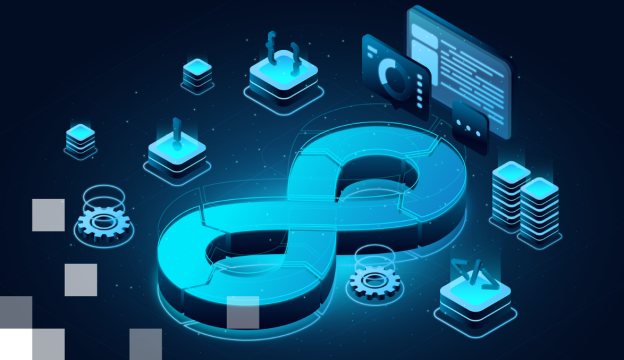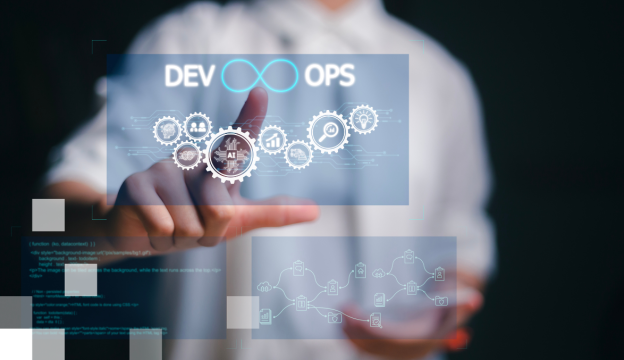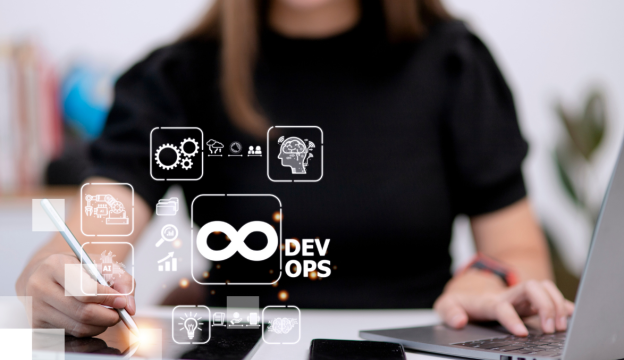Infracture-as-code:: Path to DevOps
This 3-day workshop focuses on solving challenges that organisations face when implementing DevOps initiatives. It introduces principles of DevOps and tools that help reach full automation of infrastructure provisioning and software delivery. Theoretical background as well as practical hands-on examples of tools like Ansible, Docker, AWS, Terraform, Kubernetes, Serverless and many others are given during this workshop.
EU co-financing of 50-100% is available to companies.
The total cost of tuition may vary depending on the rules of the specific association.
Course target
This 3-day workshop focuses on solving challenges that organisations face when implementing DevOps initiatives.
It introduces principles of DevOps and tools that help reach full automation of infrastructure provisioning and software delivery.
Theoretical background as well as practical hands-on examples of tools like Ansible, Docker, AWS, Terraform, Kubernetes, Serverless and many others are given during this workshop.
Audience
- Developers;
- Software Architects;
- Technical Project Managers;
- System Administrators;
- DevOps Engineers;
- Cloud Engineers;
- Infrastructure Engineers.
At course completion you will be able to:
- Gain a comprehensive understanding of DevOps principles and their significance in modern software development and IT operations;
- Acquire practical knowledge of various tools and technologies used in DevOps practices, including Ansible, Docker, AWS, Terraform, Kubernetes, Serverless, and others;
- Learn how to implement full automation of infrastructure provisioning and software delivery pipelines using the tools covered in the workshop;
- Develop hands-on experience through practical exercises and real-world examples, enabling them to apply automation techniques effectively in their organizations;
- Understand the importance of continuous integration (CI) and continuous delivery (CD) in achieving DevOps objectives, and how automation tools facilitate these practices;
- Gain insights into best practices for implementing automation solutions and overcoming common challenges encountered during DevOps initiatives;
- Receive guidance on integrating automation tools into existing workflows and processes, ensuring seamless adoption and integration within their organizations;
- Be prepared to take on roles involving DevOps practices, automation engineering, and infrastructure automation, equipped with the skills and knowledge needed to drive successful automation initiatives.
Completion of this course will equip participants with the tools, techniques, and best practices required to achieve extreme automation in their organizations, enabling them to streamline processes, improve efficiency, and accelerate software delivery with confidence.
PREREQUISITES
- Basic understanding of software development lifecycle (SDLC) and its phases;
- Familiarity with Linux command-line interface (CLI) and basic system administration tasks;
- Basic knowledge of version control systems such as Git and basic usage for code management;
- Understanding of fundamental networking concepts such as IP addressing, DNS, and routing;
- Basic knowledge of cloud computing principles and at least one major cloud platform (e.g., AWS, Azure, Google Cloud Platform);
- Familiarity with containerization concepts and technologies like Docker;
- Basic understanding of infrastructure as code (IaC) principles and tools like Terraform would be beneficial but not mandatory.
Training materials
Students will be able to use slides and code from the course.
Video recordings of the online sessions will be available for 1 month after the course.
Certification exam
Not intended.
Course outline
Day 1
- Introduction to DevOps, infrastructure as code, immutable infrastructure, idempotence principle, delivery pipelines, GitOps;
- Managing virtual/cloud resources with IaC, tooling overview, building first infrastructure configuration pipeline with Terraform;
- Managing multi-cloud/multi-data-center resources with Terraform and Terraform modules;
- Integrating with classic server provisioningtools like Ansible;
- Dynamic inventories, network management,building complex infrastructure delivery pipelines, organizing teamwork.
Day 2
- Managing base machine images with Packer;
- Introduction to containers and container management;
- Building/publishing images, running containers with Docker;
- Implementing complex use cases with Docker Compose;
- Using Kubernetes to run container workloads;
- Using Helm charts and Kubernetes operators;
- Leveraging service mesh features with Linkerd.
Day 3
- Introduction to observability: logs, metrics, traces;
- Configuring Prometheus jobs and exporters, creating Grafana data sources and dashboards;
- DevSecOps: integrating linters, security policy checkers, vulnerability scanners;
- Leveraging managed FaaS: OpenFaaS, Chalice, Serverless;
- Implementing a chat bot for Slack for effective ChatOps;
- Introduction to chaos engineering.
If you want to get more information about this course, please contact us by phone +371 67505091 or send an e-mail at mrn@bda.lv.






